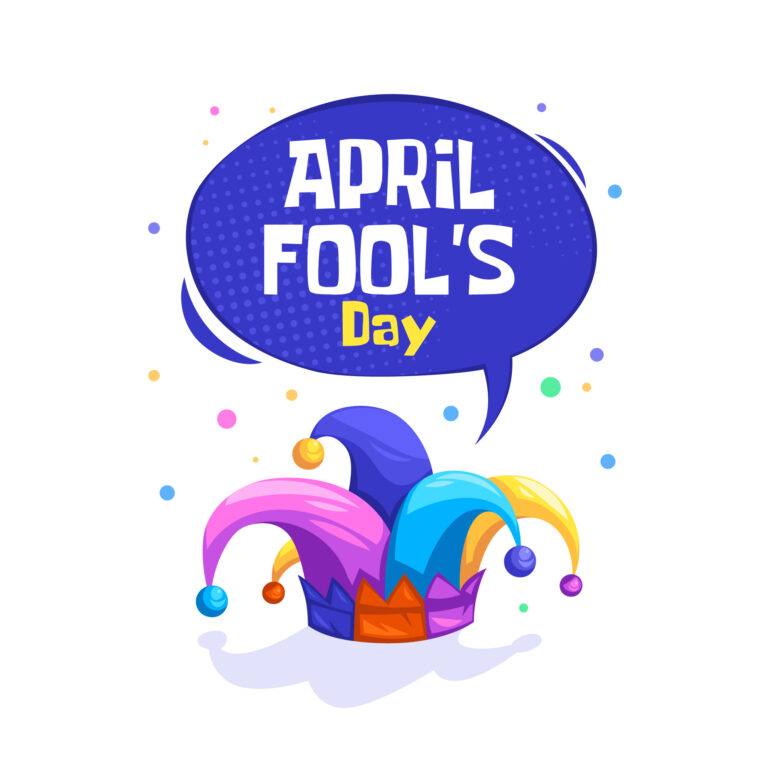
By Lorie Lewis Ham
April Fools’ Day is upon us once again. Some people love it and spend days planning elaborate hoaxes to play on their friends and family, and some people loathe the day and prefer to hide until it passes—especially those who tend to be the brunt of hoaxes. But where did this odd day actually come from?
While the exact origins of April Fools’ Day aren’t known, according to the History Channel website some historians speculate that April Fools’ Day dates back to 1582 when France switched from the Julian calendar to the Gregorian calendar. In the Julian Calendar, the new year began with the spring equinox around April 1. People who failed to recognize the change and continued to celebrate the new year during the last week of March through April 1 instead of on January 1, became the butt of jokes and hoaxes and were called “April fools.” There is also speculation that it was tied to the vernal equinox, or first day of spring in the Northern Hemisphere, when Mother Nature fooled people with changing, unpredictable weather.
The History Channel website goes on to state that it spread throughout Britain in the 18th century. In Scotland, it became a two-day event that started with “hunting the gowk,” which meant sending people on phony errands. It was followed by Tailie Day, which involved pranks where people would pin things on the backs of others such as fake tails and “kick me” signs.
According to an article on NPR, some historians have linked April Fools’ Day to the ancientRoman festival of Hilaria. At this festival, which took place at the end of March, people would come together to commemorate the resurrection of the god Attis. It was a celebration of renewal in which revelers would dress up in disguises and imitate others. Some also think that it might have been inspired by the medieval celebration of the Feast of Fools, where a mock bishop or pope was elected and church customs were parodied.
Over the last several decades, the media has become very involved in April Fools’ Day pranks as well, according to another article on NPR. Even Google gets involved. It was already so much a part of American journalism by 1903 that the Pittsburgh Post reported on March 29 of that year that “it was the habit of newspapers some years ago to observe the day by perpetrating some hoax upon their readers.” However, more recently the media has realized that they have to be careful how far they take it, or they may lose their credibility when reporting real stories.
So, are there any rules to the pranks played on April Fools’ Day? According to The U.S. Sun, while there are no “official” rules and it is celebrated differently in different countries, traditionally, April Fools’ jokes and pranks should only be pulled until midday on April 1. In England, when the clock strikes noon, you are meant to come clean about your pranks. Anyone playing a joke after noon is considered the official April fool. But of course, that doesn’t stop people from pranking throughout the day, at least here in the U.S. The Museum of Hoaxes has a list of rules for the day that include doing no harm and not doing anything illegal.
Cheapflights.com has a list of five April Fools’ Day traditions from around the world, one of which includes throwing flour on people! Musement.com has a list of 10 traditions from around the world that includes taping paper fish on people’s backs. The 1063 Buzz website has a list of some of the most common types of pranks people play, which include mind game pranks, prank phone calls, and food-related ones.
Why do some people enjoy playing pranks so much? Embolden Psychology says that humor and laughing are good for our well-being. It also states that jokes imply a sense of closeness or insider group feelings, and you tend to prank those you are close to or you feel can handle a joke. Several other websites said that pranking gave people a temporary and harmless sense of superiority over those they successfully prank. Whatever your feelings about April Fools’ Day it is a day some of us just hope to “survive” and others can’t wait for. How do you feel about April Fools’ Day? We would love it if you would share your feelings, and any fun jokes you may have pulled, or have had pulled on you, on our Facebook page.

